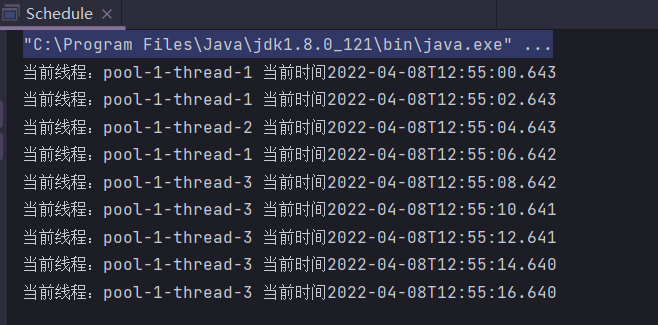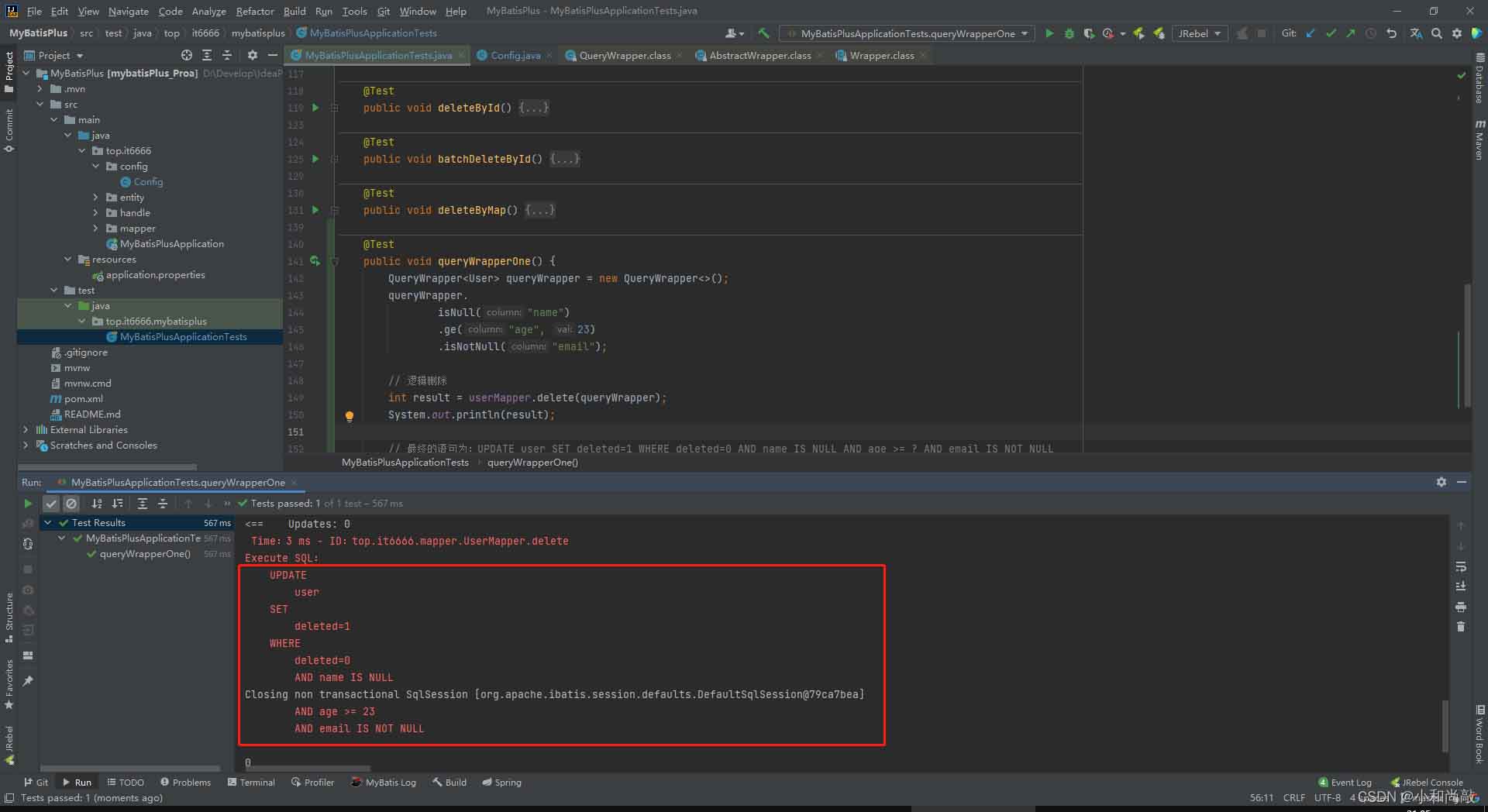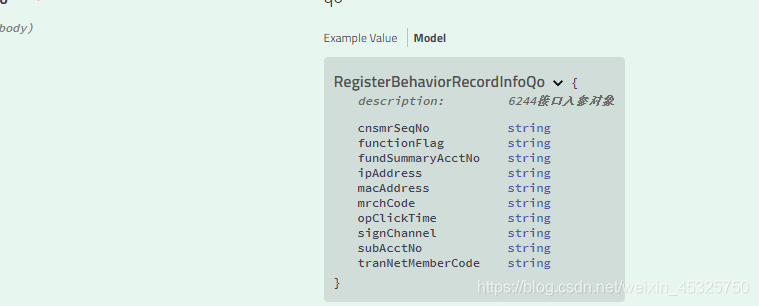Eclipse XSD 生成枚举类型的Schema的实例详解前言:因为网上关于Eclipse XSD的中文资料比较少,而且关于Eclipse XSD的范例代码也凤毛麟角,但是有的时候我们需要生成一个带枚举限定的简单类型的XSD Schema,比如下面的格式,...
Eclipse XSD 生成枚举类型的Schema的实例详解
前言:
因为网上关于Eclipse XSD的中文资料比较少,而且关于Eclipse XSD的范例代码也凤毛麟角,但是有的时候我们需要生成一个带枚举限定的简单类型的XSD Schema,比如下面的格式,
<?xml version="1.0" encoding="UTF-8"?><schema xmlns="http://www.w3.org/2001/XMLSchema" targetNamespace="http://www.w3.org/2001/XMLSchema">
<complexType name="StudentType">
<sequence>
<element maxOccurs="1" minOccurs="1" name="username" type="string"/>
<element maxOccurs="1" minOccurs="1" name="password" type="string"/>
<element maxOccurs="1" minOccurs="1" name="alignment" type="AlignmentType"/>
</sequence>
</complexType>
<simpleType name="AlignmentType">
<restriction base="string">
<enumeration value="RIGHT"/>
<enumeration value="MIDDLE"/>
<enumeration value="LEFT"/>
</restriction>
</simpleType>
<element name="Student" type="StudentType"/>
</schema>
其中, <SimpleType name="AlignmentType"> 代表的就是一个带枚举限定的简单类型。那么应该如何生成呢?请见参考下面的代码。
import org.eclipse.xsd.XSDComplexTypeDefinition;
import org.eclipse.xsd.XSDCompositor;
import org.eclipse.xsd.XSDElementDeclaration;
import org.eclipse.xsd.XSDEnumerationFacet;
import org.eclipse.xsd.XSDFactory;
import org.eclipse.xsd.XSDImport;
import org.eclipse.xsd.XSDInclude;
import org.eclipse.xsd.XSDModelGroup;
import org.eclipse.xsd.XSDParticle;
import org.eclipse.xsd.XSDRedefine;
import org.eclipse.xsd.XSDSchema;
import org.eclipse.xsd.XSDSchemaDirective;
import org.eclipse.xsd.XSDSimpleTypeDefinition;
import org.eclipse.xsd.util.XSDResourceImpl;
import org.eclipse.xsd.util.XSDUtil;
import org.junit.Test;
import org.w3c.dom.Element;
public class EnumFacetTest {
protected static XSDFactory xsdFactory = XSDFactory.eINSTANCE;
private void createAligementElement(XSDSimpleTypeDefinition aligmentType){
String[] cellAligements={"RIGHT","MIDDLE","LEFT"};
for(int i=0;i<cellAligements.length;i++){
XSDEnumerationFacet alEnum=XSDFactory.eINSTANCE.createXSDEnumerationFacet();
alEnum.setLexicalValue(cellAligements[i]);
//aligmentType.getFacets().add(alEnum);
aligmentType.getFacetContents().add(alEnum);
}
}
/**
<?xml version="1.0" encoding="UTF-8"?><schema xmlns="http://www.w3.org/2001/XMLSchema" targetNamespace="http://www.w3.org/2001/XMLSchema">
<complexType name="StudentType">
<sequence>
<element maxOccurs="1" minOccurs="1" name="username" type="string"/>
<element maxOccurs="1" minOccurs="1" name="password" type="string"/>
<element maxOccurs="1" minOccurs="1" name="alignment" type="AlignmentType"/>
</sequence>
</complexType>
<simpleType name="AlignmentType">
<restriction base="string">
<enumeration value="RIGHT"/>
<enumeration value="MIDDLE"/>
<enumeration value="LEFT"/>
</restriction>
</simpleType>
<element name="Student" type="StudentType"/>
</schema>
*/
@Test
public void EnumFacetTest() {
String targeNameSpace="http://www.w3.org/2001/XMLSchema";
XSDSchema xsdSchema=xsdFactory.createXSDSchema();
xsdSchema.setTargetNamespace(targeNameSpace);
xsdSchema.getQNamePrefixToNamespaceMap().put(null, "http://www.w3.org/2001/XMLSchema");
//1.1 Create Complex type:student
XSDComplexTypeDefinition complexTypeDef = xsdFactory.createXSDComplexTypeDefinition();
complexTypeDef.setTargetNamespace(xsdSchema.getTargetNamespace());
complexTypeDef.setName("StudentType");
XSDParticle xsdParticle=xsdFactory.createXSDParticle();
XSDModelGroup xsdModuleGroup=xsdFactory.createXSDModelGroup();
xsdModuleGroup.setCompositor(XSDCompositor.SEQUENCE_LITERAL);
xsdParticle.setContent(xsdModuleGroup);
complexTypeDef.setContent(xsdParticle);
complexTypeDef.setContentType(xsdParticle);
xsdSchema.getContents().add(complexTypeDef);
//1.2 Add element for complex type
//1.2.1 username element
XSDParticle localXSDParticle = xsdFactory.createXSDParticle();
localXSDParticle.setMinOccurs(1);
localXSDParticle.setMaxOccurs(1);
XSDElementDeclaration localXSDElementDeclaration = xsdFactory.createXSDElementDeclaration();
localXSDElementDeclaration.setTargetNamespace(targeNameSpace);
localXSDElementDeclaration.setName("username");
XSDSchema localXSDSchema = XSDUtil.getSchemaForSchema("http://www.w3.org/2001/XMLSchema");
XSDSimpleTypeDefinition localSimpleType=localXSDSchema.resolveSimpleTypeDefinition("string");
localXSDElementDeclaration.setTypeDefinition(localSimpleType);
localXSDParticle.setContent(localXSDElementDeclaration);
xsdModuleGroup.getContents().add(localXSDParticle);
//1.2.2 password element
localXSDParticle = xsdFactory.createXSDParticle();
localXSDParticle.setMinOccurs(1);
localXSDParticle.setMaxOccurs(1);
localXSDElementDeclaration = xsdFactory.createXSDElementDeclaration();
localXSDElementDeclaration.setTargetNamespace(targeNameSpace);
localXSDElementDeclaration.setName("password");
localXSDSchema = XSDUtil.getSchemaForSchema("http://www.w3.org/2001/XMLSchema");
localSimpleType=localXSDSchema.resolveSimpleTypeDefinition("string");
localXSDElementDeclaration.setTypeDefinition(localSimpleType);
localXSDParticle.setContent(localXSDElementDeclaration);
xsdModuleGroup.getContents().add(localXSDParticle);
//1.2.3.1 Create Simple Type with XSDEnumerationFacet---------------
XSDSimpleTypeDefinition xsdSimpleTypeDefinition = XSDFactory.eINSTANCE.createXSDSimpleTypeDefinition();
XSDSimpleTypeDefinition baseTypeDefinition = xsdSchema.resolveSimpleTypeDefinitionURI("string");
xsdSimpleTypeDefinition.setBaseTypeDefinition(baseTypeDefinition);
xsdSimpleTypeDefinition.setName("AlignmentType");
createAligementElement(xsdSimpleTypeDefinition);
xsdSchema.getContents().add(xsdSimpleTypeDefinition);
//1.2.3.2 Create element with Simple Type --------------
localXSDParticle = xsdFactory.createXSDParticle();
localXSDParticle.setMinOccurs(1);
localXSDParticle.setMaxOccurs(1);
localXSDElementDeclaration = xsdFactory.createXSDElementDeclaration();
localXSDElementDeclaration.setTargetNamespace(targeNameSpace);
localXSDElementDeclaration.setName("alignment");
localXSDSchema = XSDUtil.getSchemaForSchema("http://www.w3.org/2001/XMLSchema");
localXSDElementDeclaration.setTypeDefinition(xsdSimpleTypeDefinition);
localXSDParticle.setContent(localXSDElementDeclaration);
xsdModuleGroup.getContents().add(localXSDParticle);
//2.Create XSDElementDeclaration and attached complex type to XSD element
XSDElementDeclaration xsdEelement=xsdFactory.createXSDElementDeclaration();
xsdEelement.setName("Student");
xsdEelement.setTypeDefinition(complexTypeDef);
xsdSchema.getContents().add(xsdEelement);
//3.Print Schema
SchemaPrintService.printSchema(xsdSchema);
}
}
class SchemaPrintService {
/**
* print schema to console
*
* @param xsdSchema
*/
public static void printSchema(XSDSchema xsdSchema) {
System.out.println("<!-- ===== Schema Composition =====");
printDirectives(" ", xsdSchema);
System.out.println("-->");
System.out
.println("<!-- [ " + xsdSchema.getSchemaLocation() + " ] -->");
xsdSchema.updateElement();
Element element = xsdSchema.getElement();
if (element != null) {
// Print the serialization of the model.
XSDResourceImpl.serialize(System.out, element);
}
}
private static void printSchemaStart(XSDSchema xsdSchema) {
System.out.print("<schema targetNamespace=\"");
if (xsdSchema.getTargetNamespace() != null) {
System.out.print(xsdSchema.getTargetNamespace());
}
System.out.print("\" schemaLocation=\"");
if (xsdSchema.getSchemaLocation() != null) {
System.out.print(xsdSchema.getSchemaLocation());
}
System.out.print("\">");
}
private static void printDirectives(String indent, XSDSchema xsdSchema) {
System.out.print(indent);
printSchemaStart(xsdSchema);
System.out.println();
if (!xsdSchema.getReferencingDirectives().isEmpty()) {
System.out.println(indent + " <referencingDirectives>");
for (XSDSchemaDirective xsdSchemaDirective : xsdSchema
.getReferencingDirectives()) {
XSDSchema referencingSchema = xsdSchemaDirective.getSchema();
System.out.print(indent + " ");
printSchemaStart(referencingSchema);
System.out.println();
System.out.print(indent + " ");
if (xsdSchemaDirective instanceof XSDImport) {
XSDImport xsdImport = (XSDImport) xsdSchemaDirective;
System.out.print("<import namespace=\"");
if (xsdImport.getNamespace() != null) {
System.out.print(xsdImport.getNamespace());
}
System.out.print("\" schemaLocation=\"");
} else if (xsdSchemaDirective instanceof XSDRedefine) {
System.out.print("<redefine schemaLocation=\"");
} else if (xsdSchemaDirective instanceof XSDInclude) {
System.out.print("<include schemaLocation=\"");
}
if (xsdSchemaDirective.getSchemaLocation() != null) {
System.out.print(xsdSchemaDirective.getSchemaLocation());
}
System.out.println("\"/>");
System.out.println(indent + " </schema>");
}
System.out.println(indent + " </referencingDirectives>");
}
if (!xsdSchema.getIncorporatedVersions().isEmpty()) {
System.out.println(indent + " <incorporatedVersions>");
for (XSDSchema incorporatedVersion : xsdSchema
.getIncorporatedVersions()) {
printDirectives(indent + " ", incorporatedVersion);
}
System.out.println(indent + " </incorporatedVersions>");
}
System.out.println(indent + "</schema>");
}
}
如有疑问请留言或者到本站社区交流讨论,感谢阅读,希望能帮助到大家,谢谢大家对本站的支持!
沃梦达教程
本文标题为:Eclipse XSD 生成枚举类型的Schema的实例详解


基础教程推荐
猜你喜欢
- 使用Java和WebSocket实现网页聊天室实例代码 2024-02-25
- 是否适合从javabean类更新数据库? 2023-11-04
- 运用El表达式截取字符串/获取list的长度实例 2023-08-01
- JSP 动态树的实现 2023-12-17
- 深入理解约瑟夫环的数学优化方法 2024-03-07
- JavaWeb 实现验证码功能(demo) 2024-04-14
- Java+mysql实现学籍管理系统 2023-03-16
- springboot下使用shiro自定义filter的个人经验分享 2024-02-27
- Java中EnvironmentAware 接口的作用 2023-01-23
- Java编写实现窗体程序显示日历 2023-01-02

















